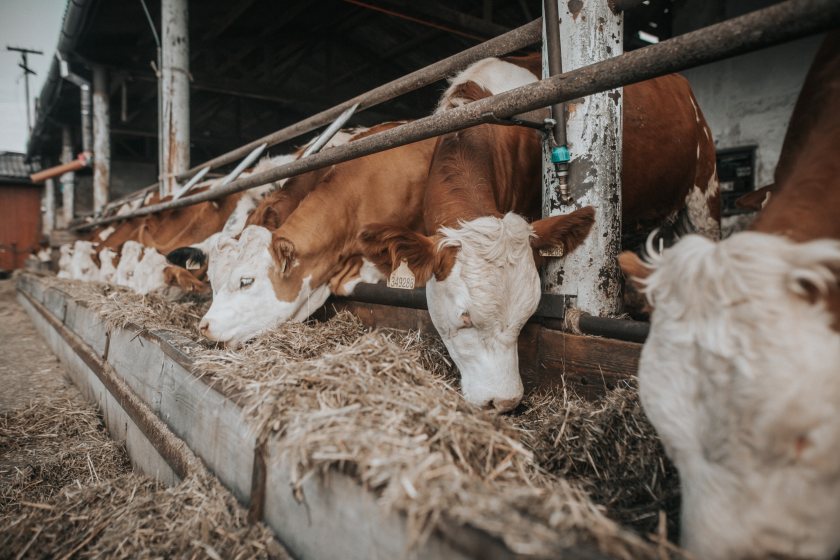
Amazon's Jeff Bezos has announced he will award a £7.3m grant to help a UK-based project to slash cattle emissions with the use of a potential new vaccine.
The project seeks to use biotechnology to figure out the mechanism by which a vaccine could cut livestock methane emissions by more than 30%.
The Pirbright Institute and the Royal Veterinary College (RVC) are behind it, and have been supported by a Bezos Earth Fund grant.
The fund, launched in 2020 by Mr Bezos, has a portfolio of grants looking to reduce emissions through low-methane genetics, improved feed, and better farm management practices.
However, scientists say a vaccine could offer a universal solution which is both scalable and cost effective, integrating into existing farm management systems.
Dr Andrew Steer, president of the Bezos Earth Fund, said: "Vaccines have proven to be incredibly effective in global health, and if we can apply this approach to cattle, the potential for reducing emissions is immense.
"The Bezos Earth Fund is committed to high-risk, high-reward projects like this, which have the power to transform our efforts against climate change."
The project comprises two key components, each tackling different aspects of the challenge.
The first one will see researchers at the Royal Veterinary College study how and when methane-producing microbes colonise the digestive tract of calves and how the immune system responds.
The second will see scientists from the Pirbright Institute hoping to identify and characterise specific antibodies needed to target these microbes effectively.
"We're not developing a methane vaccine per se, but rather defining what a successful vaccine needs to achieve," explained Professor John Hammond, of the Pirbright Institute.
"By understanding the precise antibody responses required, we can provide a clear path forward for vaccine development.
"This approach reduces the trial-and-error aspect and focuses on targeted, high-resolution immunology."
